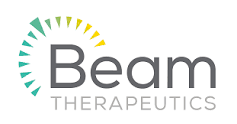
Beam Therapeutics Brings $83M, 200-Job Gene Therapy Site to Triangle Cluster

A young Boston-area gene therapy company, Beam Therapeutics, has joined a cluster of gene and cell therapy startups with plans to build an $83 million biomanufacturing facility in Durham that could employ more than 200 people over five years.
Beam is developing precision genetic medicines through a pioneering CRISPR technology known as base editing. It’s using this proprietary gene editing approach to create therapies aimed at cures for serious diseases with precise edits to single base pairs in DNA and RNA.
The 3-year-old Cambridge, Mass., company is planning a 100,000-square-foot manufacturing facility in Durham County that will pay its workers an average $102,654 a year.
Beam was co-founded by three highly respected scientists:
- David R. Liu, Ph.D., the Richard Merkin Professor and vice-chair of the faculty at the Broad Institute of Harvard and the Massachusetts Institute of Technology, professor of chemistry and chemical biology at Harvard, and Howard Hughes Medical Institute investigator. Liu is also a founder of Pairwise, a gene editing and plant technology start-up that established headquarters in Durham in 2008;
- J. Keith Joung, M.D., Ph.D., a leading innovator in the field of genome editing and Desmond and Ann Heathwood Research Scholar, pathologist, and associate chief of pathology for research at Massachusetts General Hospital and professor of pathology at Harvard Medical School;
- Feng Zhang, Ph.D., a core institute member of the Broad Institute, an investigator at the McGovern Institute for Brain Research at MIT, and the James and Patricia Poitras Professor in Neuroscience at MIT.
“We believe investment in strategic manufacturing capabilities is an important component of fully realizing the power of our base editing technology and achieving our vision to provide life-long cures to patients suffering from serious diseases”, said John Evans, CEO of Beam Therapeutics. “Research Triangle Park is a thriving biopharmaceutical hub, providing significant access to the broad range of talent we will need to make this vision a reality.”

-- Beam Therapeutics photo
Beam is targeting gene therapies in the fields of hematology, oncology, liver diseases, and ocular and central nervous system (CNS) diseases. The company believes its approach provides greater control of the gene editing process with a lower risk of unintended off-target effects. Based on the most effective method for each target organ, Beam uses a range of gene delivery strategies, including electroporation for blood and immune cells, non-viral (LNP) for liver and potentially other organs, and viral (AAV) for delivery to the eye and CNS.
Beam’s technology platform incorporates gene editing and gene delivery modalities found across North Carolina’s broad and growing cell- and gene-based therapy community. In the gene editing space, North Carolina has both home-grown companies like Precision BioSciences and production-phase companies including Cellectis.
Spanning the field from academic research to commercial manufacturing, North Carolina’s ecosystem also includes expertise in several gene therapy delivery modalities including AAV used by Pfizer, AveXis, Audentes Therapeutics and AskBio, and lentiviral approach used by bluebird bio. Beam's appreciation of the breadth and depth this expertise offers from a talent perspective is a driving factor in the selection of NC as a preferred location. Access to a highly specialized workforce and training infrastructure, in combination with North Carolina’s attractive business climate and high quality of life, continues to position the state as a leading location for advanced biomanufacturing operations like Beam’s.
Mass., Md., Philly competed with NC
“Beam’s decision to locate in the Triangle rather than sites it explored in Massachusetts, Philadelphia and Maryland further bolsters North Carolina’s growing community of cell- and gene-based therapy companies,” said Laura Rowley, Ph.D., the North Carolina Biotechnology Center’s director of life science economic development, who helped support Beam’s recruitment.
“With Beam Therapeutics’ commitment to innovation comes exciting opportunities for precise and efficient genetic medicines to cure a broad spectrum of diseases ranging from sickle cell to cancer.”
In announcing the Beam Therapeutics recruitment, Gov. Roy Cooper said it’s an example of the state’s life sciences leadership.
North Carolina Commerce Secretary Anthony M. Copeland added, "North Carolina has been a world leader in biotechnology for many years, but we’re not resting on our past accomplishments. Beam Therapeutics joins a host of gene therapy companies that are keeping North Carolina at the forefront of this new frontier of medicine.”
Beam’s decision to locate in North Carolina is being bolstered by a Job Development Investment Grant (JDIG) approved by the state’s Economic Investment Committee earlier today. Over the course of 12 years, the project is estimated to grow the state’s economy by $1.36 billion. Using a formula that takes into account the new tax revenues generated by the new jobs, the agreement authorizes the potential reimbursement to the company of up to $3,237,750, spread over 12 years.
Payments for all JDIGs only occur following performance verification by the departments of Commerce and Revenue that the company has met its incremental job creation and investment targets. JDIG projects result in positive net tax revenue to the state treasury, even after taking into consideration the grant’s reimbursement payments to a given company.
In addition to recruitment support from NCBiotech, partners involved in the project include the North Carolina Department of Commerce and the Economic Development Partnership of N.C., North Carolina Community College System, Durham County, and the Greater Durham Chamber of Commerce.
